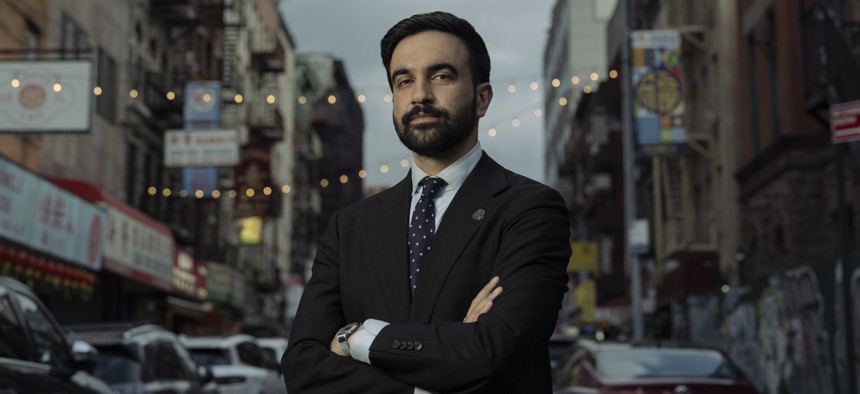NYC Democrats back Zohran Mamdani’s Controversial Agenda
New York City’s Democrats, observing the developments in regions like Chicago and California, have plunged headfirst into a quest to reach a perceived low point before their peers. Notably, they have cast their support behind Zohran Mamdani. The choice of Mamdani appears rather unfavorable compared to other potential top-tier candidates like Andrew Cuomo or Brad Lander.
Identifying as a socialist, Mamdani shared in 2020 his belief that New York City needs governance akin to a communist mayor from India. His proposed mandates include government-operated grocery stores and imposing rent controls. Furthermore, he enjoys endorsements from prominent figures in American socialism, such as Senator Bernie Sanders.
Mamdani’s perceived lack of economic acumen is compounded by his staunch stand supporting the disbandment of police services. By his logic, he would eliminate the entire New York City Police Department based on his view that it is “racist, anti-queer, and significantly jeopardizes public safety.”
In addition to these concerns, Mamdani has also been accused of harboring antisemitic sentiments. He has defended individuals who’ve shown antisemitic behavior and who espouse to “globalize the intifada.” Further complicating things, he has expressed desire to detain Israeli Prime Minister Benjamin Netanyahu on unproven war crime allegations—vexingly ironic, given his stance on defunding the police.
Critics fear Mamdani’s economic and public safety strategies might both lead to severe damage to New York City. Before nominating him, the Democrats of New York City faced warnings about these potential consequences from unexpected sources like the Chicago Tribune. The Tribune drew parallels between New York and the city of Chicago, which is grappling with its challenges under a socialist mayor.
The mayor of Chicago, Brandon Johnson, is seen as having little grasp of economics. He is also seen catering to select interest groups that he is personally invested in, the Chicago Teachers Union being a prime example. As of August 2024, Chicago had projected budget deficits of $982 million for 2025 and Johnson found himself saddled with approval ratings barely above 6%.
Although New York City’s population trend finally shows signs of recovery, it currently remains over 300,000 below pre-pandemic numbers. Mirroring the journey of Chicago threatens to halt even this slow recovery. By August of last year, Chicago recorded its smallest population since the days of the Roaring Twenties.
Similarly, California also projects a state of decline. Quixotic progressivism there has reportedly drained billions for ideological endeavors, the high-speed rail being a notorious example. Coupled with a substantial budget deficit and a declining population, California’s situation seems bleak.
California doesn’t seem to have reached the nadir of its progressive-centered challenges, especially with the expectation that former Vice President Kamala Harris, no stranger to progressive leanings, might replace the more centrist Governor Gavin Newsom. A predictable outcome is looming for all but the Democratic voters who dictate elections in these regions.
Predictions for these regions include burgeoning budget shortfalls, wasted funding, surges in criminal activity due to the demonization of law enforcement officials, and the shifting portrayal of convicts as victims. This dire state of affairs may force many to seek better conditions in places like Florida, Texas, or Idaho.
Under these circumstances, New York City appears on course to join the ranks of California and Chicago as one of the worst-governed states and cities nationwide. The potential of an inexperienced, controversial figure leading the nation’s largest city is a chilling prospect to some.
The shared thread among these regions is a perceived lack of financial prudence, coupled with a decline in law and order due to devaluing the role of police. Citizens and observers are left to question if there is ample consideration of the long-term consequences of such sweeping changes.
Democratic voters in these areas have their decision-makers, and these are often influenced by different political ideologies. One thing remains clear: the decline of a region relies heavily upon those who govern it and the policies they implement. Societies must reflect on their political choices before acting upon them.
Rebuilding any city or state is difficult and requires patience, tact, and strategic vision, qualities often missing from ideologically rigid policies. Therefore, as these incidents unfold, all eyes will be on regions such as New York City, Chicago, and California to see how they rebound or escalate their current situations.



